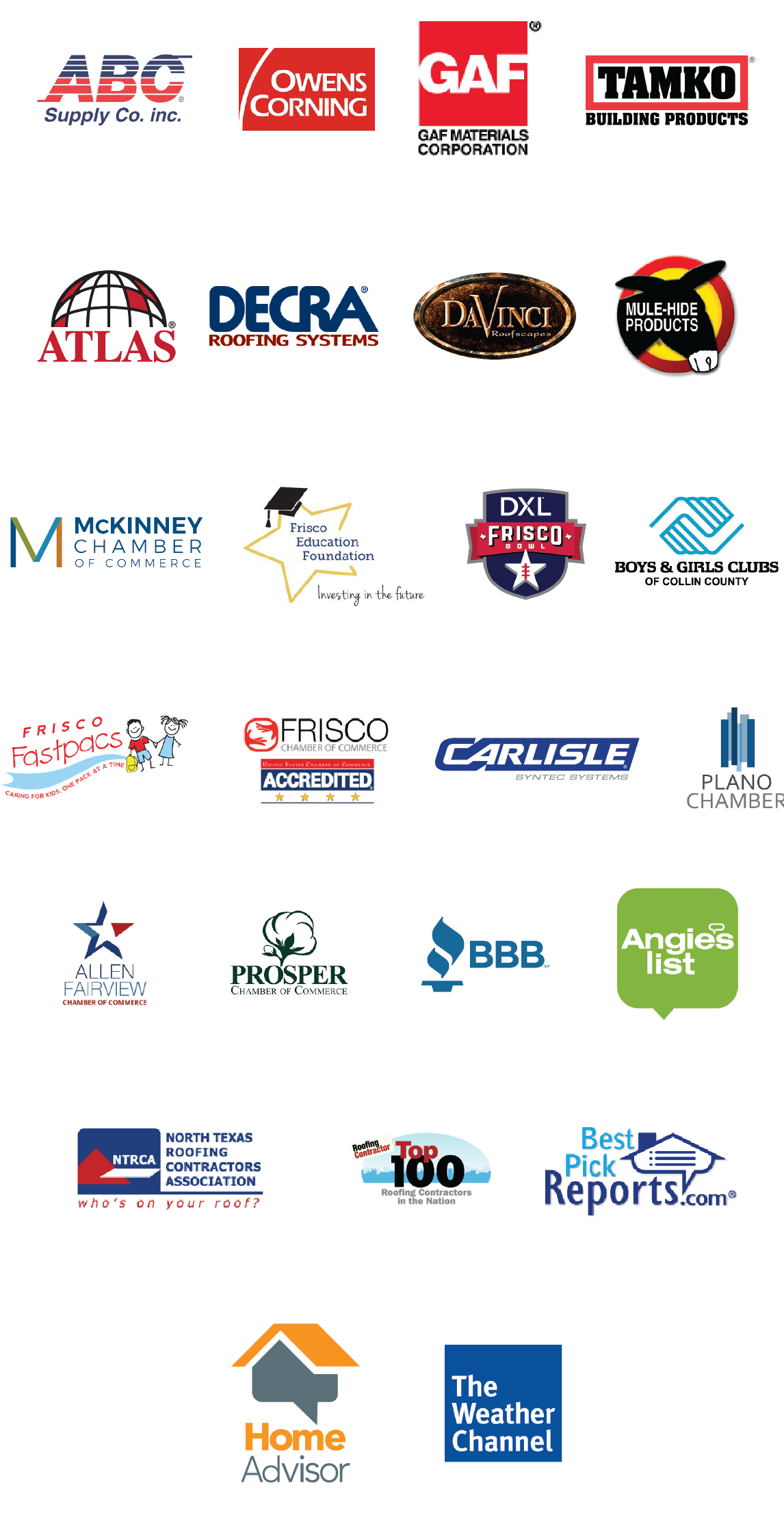In the aftermath of North Texas storms, neighborhoods are typically flooded with roofing salespeople and flyers, trying to drum up business in one of the few states left in the country without some sort of state licensing requirement for roofers. It can be difficult for homeowners to weed out the good roofing contractors from the bad. To help, NTRCA has compiled a list of the top 5 shady roofing practices reported to the organization by members and homeowners.

1) Contingency Contracts Contingency contracts are a common practice for many roofing companies. If the homeowner is aware of the contingency and understands and agrees to it, that’s one thing. But when a roofing company hides the language in fine print AND rushes a homeowner to sign a contract without discussing the contingency with a homeowner, it’s a shady business practice. Most typically what’s been reported to us is a roofing company promising “free” emergency repairs, a roof inspection and/or roof tarping if a homeowner will sign an agreement. In the fine print are details that tie the homeowner to that roofing contractor in the event that the homeowner’s insurance company pays for a roof replacement. TIP: always read everything (even the fine print) before signing anything.
2) Contractors Asking for Money Upfront If a contractor asks for money upfront, that could be the sign of a potential red flag. The elderly, in particular, are often targeted by scammers who get payment (partial or in full) upfront and then never return or complete the work. This is the most common scam reported to the NTRCA. In some cases, a partial payment upfront is not cause for alarm, such as 1) when a partial payment is required for materials, after they have been delivered to the project location and 2) if a special, high-end product is required, such as a specialty type of slate material. TIP: do significant research on any roofing contractor before paying them anything; never hand over your insurance check to a roofing company or any other contractor; and do not make a final payment before a job is complete.
3) Sales Lead Generation Companies Another tactic reported to NTRCA is one where lead generation companies, disguised as “roofing damage experts” call areas that have received storm damage. They call and use a script that carefully avoids identifying themselves by a company name and tell homeowners “we’ll be in your area next week.” When the homeowner agrees to an appointment with the no-name company, that company turns around and sells the lead to a roofing company, which could be a legitimate roofing contractor … or not. TIP: If you get a call like this ask, “What company are you representing?” and “What is your address?” If they hesitate or side-step the question, simply hang up.
4) Roofing Companies Acting As Insurance Adjusters Another red flag is when roofing contractors act as insurance adjusters and claim they can help homeowners negotiate or “work” their claim. This practice is illegal – a single company/person cannot act as both a homeowner’s roofer AND their insurance adjuster. TIP: talk with your insurance adjuster about the claim and your roofing contractor about the scope of work to be performed.
5) Storm Chasers – Here Today, Gone Tomorrow In Texas, anyone can hang up a “shingle” and call themselves a roofing company. And when storms hit in North Texas, we see an influx of out-of-town roofers (a.k.a. storm chasers), who “work the storm” and then leave town not long after the storms do, unable and unwilling to service any kind of warranty they promised. Similarly, we also see “in-town” storm chasers, who may be from the area, but have no roofing expertise, yet suddenly jump into the roofing business simply because there is significant opportunity to make money. TIP: pick a company that is local, experienced and a member in good standing with a professional roofing organization.
CALL US TODAY at 972-377-8188 with any questions you may have or CLICK HERE to scheduled your FREE Inspection or Estimate.

Source: NTRCA.com



 Let us inspect your roof's condition, repair damaged shingles, reseal flashings, replace plumbing boots, re-caulk exposed nailheads or staples, and more!
Let us inspect your roof's condition, repair damaged shingles, reseal flashings, replace plumbing boots, re-caulk exposed nailheads or staples, and more!
 Addison,
Addison,